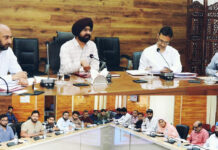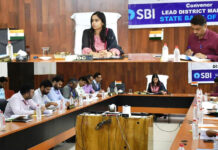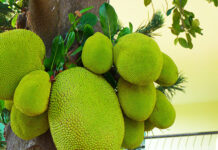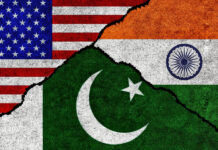DOGRA HERALD BUREAU
New Delhi, Feb 29
The government on Thursday approved a subsidy of Rs 24,420 crore for phosphatic and potassic (P&K) fertilizers, adding three new grades to aid farmers and enhance the productivity of oilseeds and pulses.
The Union Cabinet, chaired by Prime Minister Narendra Modi, approved the Department of Fertilizers’ proposal to set nutrient-based subsidy (NBS) rates for the 2024-25 kharif sowing season, which runs from April to September, according to an official statement.
Despite rising prices of fertilizers in the global market, we have decided to keep the prices the same as the last season,” said minister Anurag Thakur at a press briefing after the Cabinet meeting.
The minister said the subsidy on Nitrogen (N) has been fixed at Rs 47.02 per kg, phosphatic (P) at Rs 28.72 per kg, potassic (K) at Rs 2.38 per kg and Sulphur (S) at Rs 1.89 per kg for 2024 kharif season.
The subsidy on phosphatic fertilisers has been increased to Rs 28.72 per kg for the 2024 kharif season from Rs 20.82 per kg in the 2023 rabi season. However, the subsidy on nitrogen (N), potassic (K) and Sulphur (S) has been kept unchanged for 2024 kharif season.
The subsidy on di-ammonium phosphate (DAP) will continue at Rs 4,500 per tonne.
As such, DAP-based fertilizers will be available for Rs 1,350 per bag, while muriate of phosphate (MOP) fertilizers will be available for Rs 1,670 a bag, and NPK (nitrogen, phosphorus and potassium) for Rs 1,470 per bag.
For the 2023-24 kharif season, a subsidy of Rs 38,000 crore was announced.
The Union Budget for fiscal year 2024-25 (FY25) allocated Rs 1.64 trillion for fertilizer subsidy, lower than the revised estimate of Rs 1.88 trillion allotted for FY24.
Though India is moving toward gaining self-sufficiency in urea, it still depends on imports to meet its rock phosphate demand. Rock phosphate is the key raw material for DAP and NPK fertilizers.
India is dependent on imports for muriate of potash and imports nearly 5 million tonnes of phosphate rock, 2.5 million tonnes of phosphoric acid and 3 million tonnes of DAP annually. In the case of diammonium phosphate, around 60% of the supply is imported. In addition, 25% of urea and 15% of NPK fertilizer requirements are met through imports.
Since its inception in 2010, the NBS scheme has played a pivotal role in ensuring farmers have access to essential nutrients at subsidized prices, now expanded to cover 25 grades of P&K fertilizers for both rabi and kharif seasons.



























